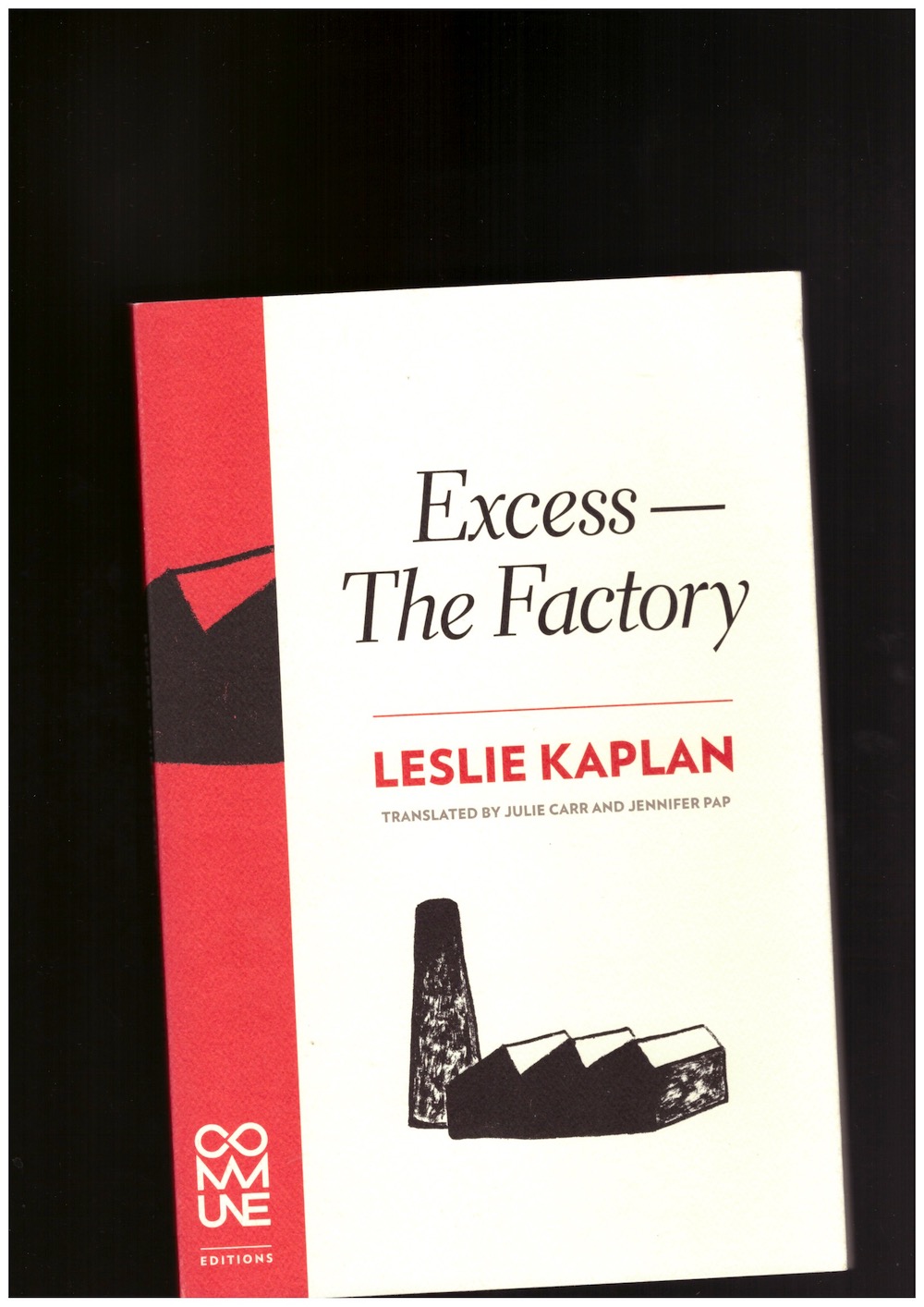KAPLAN, Leslie
Excess—The Factory
It’s spring. The factory is fat and cold.
You look, outside.
You arrive through the fields, through the countryside.
You pedal in the air, transparent and closed in.
The countryside is yellow and green.
You pass through anonymous trees. The path crunches, fragile.
You ride on sharp crumbling stones, dry pebbles, gravel.
Slight creatures fly against the wide flat sky.
From far away you see it. It’s set on the grass, light. The sheet metal is thin, undulating.
The windows are all open. The air circulates, identical.
You put away the bike. The courtyard is paved with rounded stones.
In the back, scaffolding. The paving stones make a strange surface, calm.
You cross the air. Between the stones, grasses poke through.
Nothing disappears, ever. The air swells, at each instant, with odors.
You advance through the round courtyard. The sky above, naïve. You are afraid, endlessly.
Women arrive in soft blouses. You have eyes, you see their breasts.
Space is divided. It’s terrible.
You are not protected.
You come, you go. Cruel and soft spring.
Factory the factory, first memory.
Leslie Kaplan was born in Brooklyn, but raised and educated in France. Beginning in January 1968, Kaplan worked for two years in a series of factories, and participated in the events of May 1968. L’excès-L’usine (Excess—The Factory) was published in 1982 with Hachette. Since then she has published over a dozen works (novels, essays, and theatre pieces) with P.O.L. and Gallimard.
Translated from the French by Jennifer Pap and Julie Carr.
Published by Commune Editions, 2018
Literature
